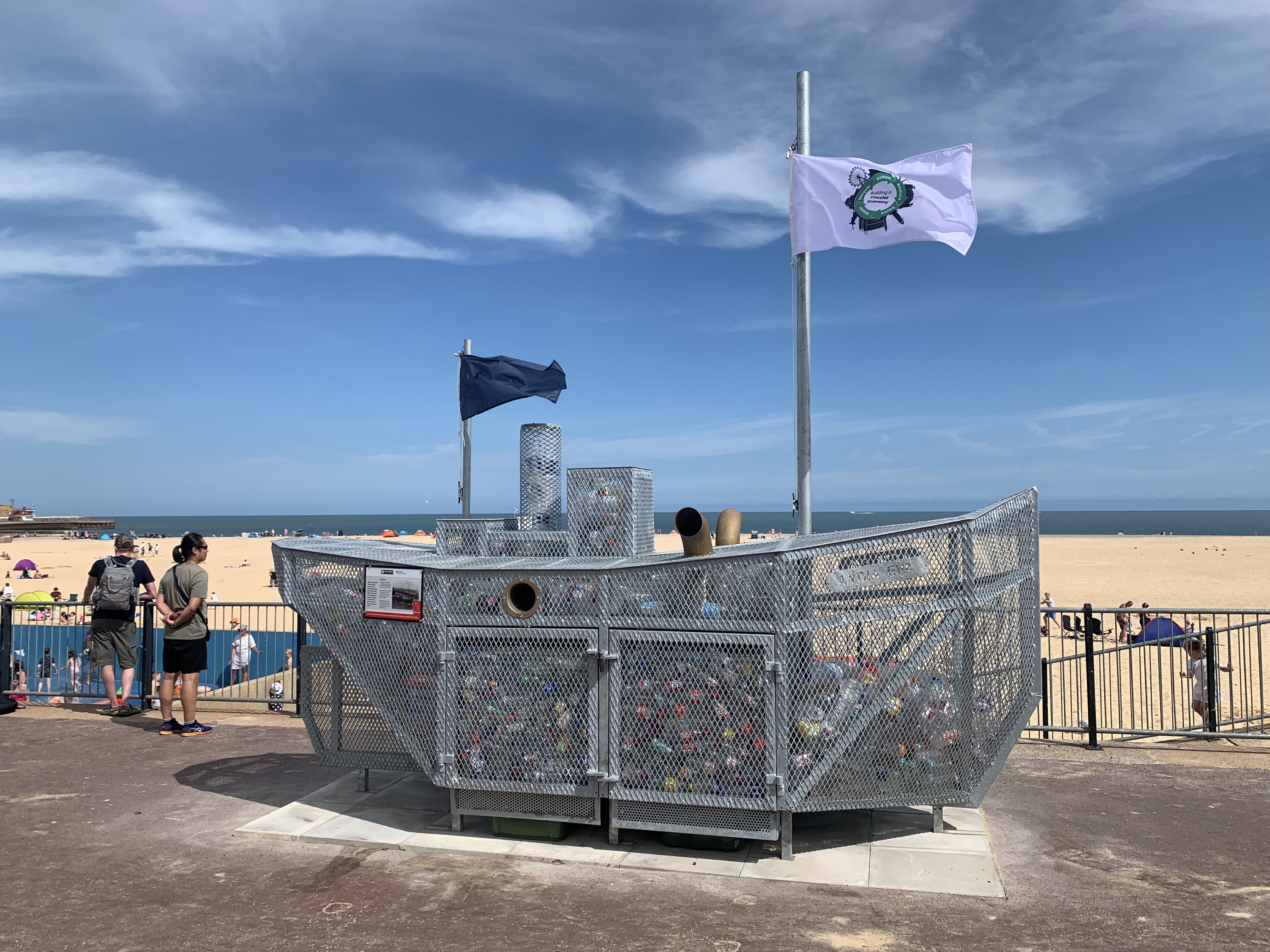Geen bewerkingssamenvatting |
Geen bewerkingssamenvatting |
||
| Regel 8: | Regel 8: | ||
By motivating behaviour change to reduce & re-use, as well as optimizing waste management we hope our pilot will achieve wide-spread benefits and drive greener aspirations among our independent business, waste operative teams and the tourists that help drive Great Yarmouth’s economy. | By motivating behaviour change to reduce & re-use, as well as optimizing waste management we hope our pilot will achieve wide-spread benefits and drive greener aspirations among our independent business, waste operative teams and the tourists that help drive Great Yarmouth’s economy. | ||
{{Project FACET Pilot config}} | {{Project FACET Pilot config}} | ||
{{Project | {{Project | ||
| Regel 32: | Regel 31: | ||
|Rstrategy=Recycle, Reduce, Refuse, Repurpose, Reuse | |Rstrategy=Recycle, Reduce, Refuse, Repurpose, Reuse | ||
|Partners=STKH 00046 | |Partners=STKH 00046 | ||
|Picture= | |Picture=Fish and chip box, NCC - Alanna Richardson.jpg | ||
}} | }} | ||
Versie van 8 feb 2021 16:33
Currently, tourists generate a large volume of mixed packaging waste in Great Yarmouth due to the popularity of traditional fried fare, such as fish & chips. At present these foodstuffs cause a large amount of bulky single-use packaging e.g. lined/waxed card and polystyrene plastic contaminated by food. At this coastal resort bins in heavy foot-fall areas easily become overwhelmed during high season. This leads to an increase in bin collections, unsightly street litter and pests such as seagulls and rats. At Norfolk County Council and Great Yarmouth Borough Council we want to work with food-vending entrepreneurs to pilot an engaging 3 step solution:
1) Adopt a point of sales solution such as a Tupperware re-use scheme; a circular solution that will reduce the amount of unnecessary disposable packaging entering the waste stream. This will support small independent vendors to enhance the kind of green credentials that promotes customer loyalty.
2) Incentivize visitor engagement with the pilot through low-tech gamified waste disposal and deposit-return schemes. We plan to explore the use of nudge-theories or the use of interactive bins that incentivize participation in the pilot.
3) In addition to trialing the deposit-return scheme of reusable Tupperware we’ll also be exploring ways to optimize street and business waste collection to combat the age-old issue of street bin capacity. Having highlighted the most heavily used bin locations we’ll trial the use of smart bins and collection technologies to help streamline refuse collection for greater efficiency of resources.
By motivating behaviour change to reduce & re-use, as well as optimizing waste management we hope our pilot will achieve wide-spread benefits and drive greener aspirations among our independent business, waste operative teams and the tourists that help drive Great Yarmouth’s economy.

